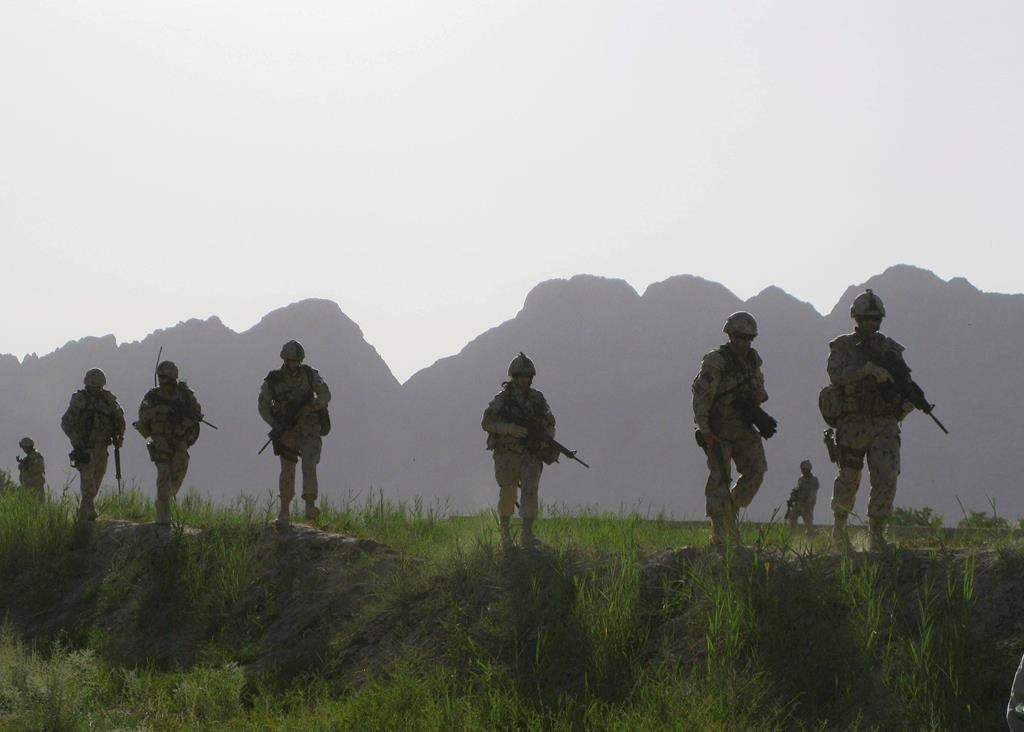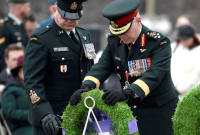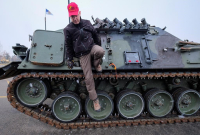Support strong Canadian climate journalism for 2025
A site has been officially approved for the federal government's promised national monument for the war in Afghanistan, five years after the memorial was first promised.
The decision by the National Capital Commission on Thursday ends years of bickering over where the memorial should be located and paves the way for it to be built east of the Canadian War Museum in downtown Ottawa.
The national monument is separate from the memorial to soldiers who died in Afghanistan, whose unveiling at the Canadian Forces' new headquarters building last month prompted an outcry.
The national monument was first promised by the previous Conservative government in May 2014 following the end of Canada's 13-year mission in Afghanistan.
But while work was to be finished by 2017, the construction timeline became derailed by complaints over the government's chosen location at Richmond Landing, near the Royal Canadian Navy Monument along the Ottawa River.
Among the concerns was the site was isolated and difficult to reach, particularly in winter and for veterans with accessibility challenges.
Members of the veterans' community instead overwhelmingly backed a different location to the immediate west of the war museum, which was one of four sites proposed by Veterans Affairs.
But the war museum and its architect, Raymond Moriyama, opposed that site, saying the institution intentionally avoids emphasizing any one conflict and that the memorial would detract from the building's design.
The approved location is across the street from the museum and behind the National Holocaust Monument. Design work is expected to start in the coming months, with the memorial's unveiling now scheduled for fall 2023.
Retired major Mark Campbell, who lost both legs while serving in Afghanistan, welcomed news that officials had approved a location. He said the monument "has been in limbo far too long."
The NCC's decision follows an uproar last month over the way a memorial erected by Canadian soldiers in Kandahar during the Afghan war was unveiled at the Department of National Defence's new headquarters building under what some alleged was a veil of secrecy.
The monument, with shiny black plaques featuring each of Canada's military and civilian war dead, stood for years at Kandahar Airfield in southern Afghanistan. It was moved to Canada after the combat mission ended in 2011.
Campbell understood the anger veterans and the families of soldiers killed in Afghanistan felt after being excluded from the Kandahar memorial's unveiling, and welcomed their being allowed to visit it.
But, he added, "people were of the mistaken perception that that was in fact the national Afghanistan War memorial or monument, and it's not.
"It was a form of remembrance, a concrete form of remembrance, created by soldiers for soldiers. And the current location may not be ideal, but this is not the national monument we're talking about. This was a monument created by soldiers for soldiers and families."
Veterans Affairs Minister Lawrence MacAulay in a statement said the new location offered "an accessible and fitting place to quietly reflect and honour the courage, sacrifices and achievements of those who served during our country’s mission in Afghanistan."
More than 40,000 Canadians served in Afghanistan between 2001 and 2014. More than 160 were killed while thousands were left with physical and psychological injuries and trauma.





Comments